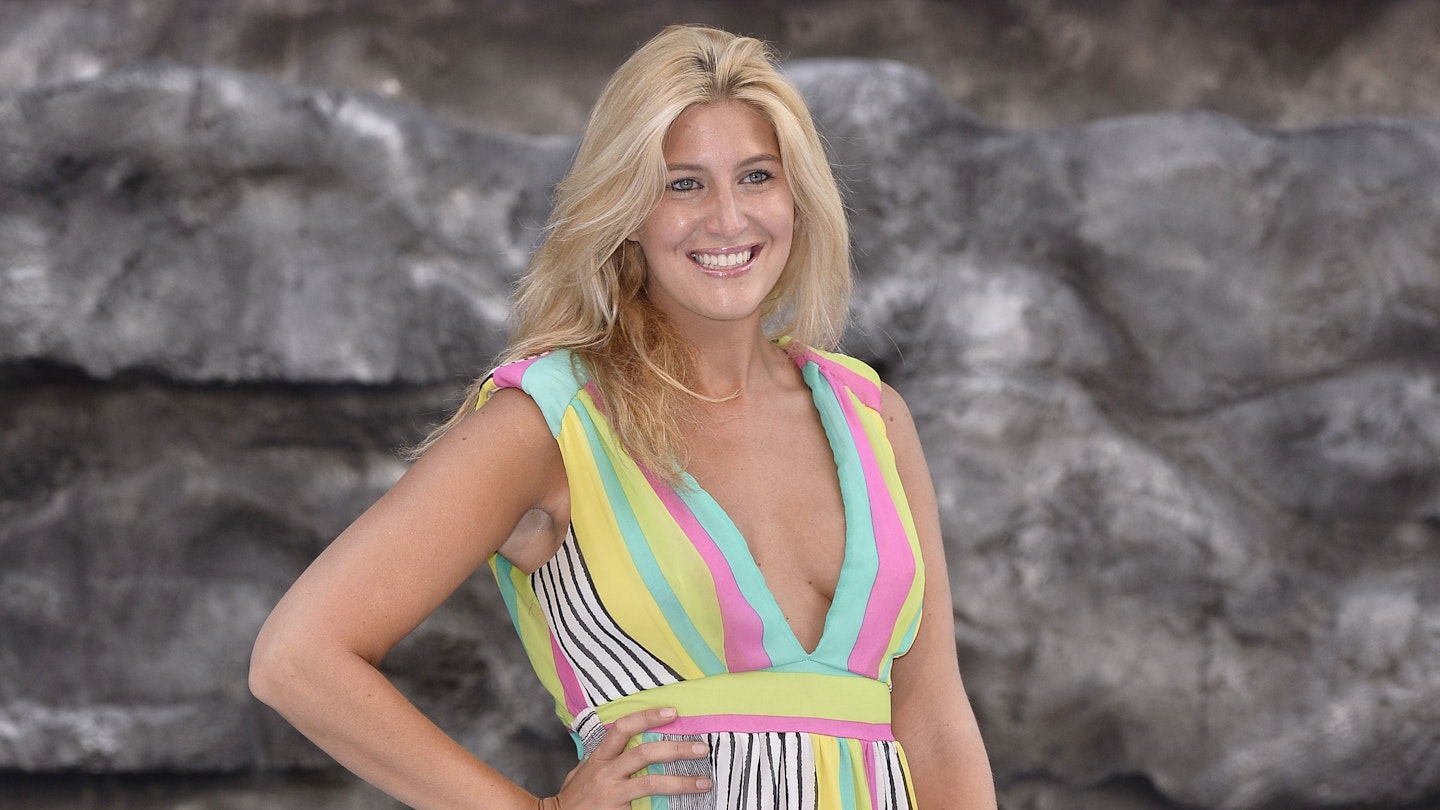Reality TV dominates our cultural landscape, but after the tragic recent death of former Love Island contestant Sophie Gradon, former Made In Chelsea star Cheska Hull reveals the dark side of starring in one of the shows...
When Cheska Hull appeared in the first episode of Made In Chelsea, in 2011, she was the ebullient blonde socialite who organised parties for her very posh crowd of friends. But three years later, despite trying her best to save face on-screen, she’d privately become depressed, anxious and so withdrawn that she feared leaving the house. At her lowest ebb, she felt suicidal.
‘Most friends told me to just stop doing it,’ says Cheska. ‘But part of me was scared: am I ever going to be employable after this? Will people laugh at me? I had a degree and an education, but I didn’t know how I could get a serious job after the show.’
It’s a spiral that’s all too common, and one that was thrown into sharp relief last month, when 2016 Love Island contestant Sophie Gradon was found dead, aged just 32. Only a few months earlier, she had revealed that online trolls had caused her to ‘descend into a dark place’ and warned that they were causing ‘kids as young as nine [to take] their own lives’. Her co-star Zara Holland admitted that the show had left her feeling ‘haunted and depressed’, having been stripped of her Miss Great Britain title for having sex on-screen. And that’s just in the UK: last week, a Russian reality TV star took her own life after falling into depression and misusing drugs, while in the US, in 2016 it was reported that 21 reality stars have committed suicide in the last decade.
Before every series of Made In Chelsea, Cheska, 33, was given a psychological assessment by Channel 4 and was required to speak to a therapist. Those wanting to go on Love Island are also screened before joining the show. Both Channel 4 and ITV offer support before, during and after filming. (An ITV spokesperson for Love Island told Grazia last week, ‘We take our duty of care very seriously and this is always our top priority.’) But despite care being taken, there is often no way of knowing exactly how someone is going to react to the level of scrutiny they’re subjected to, particularly on social media.
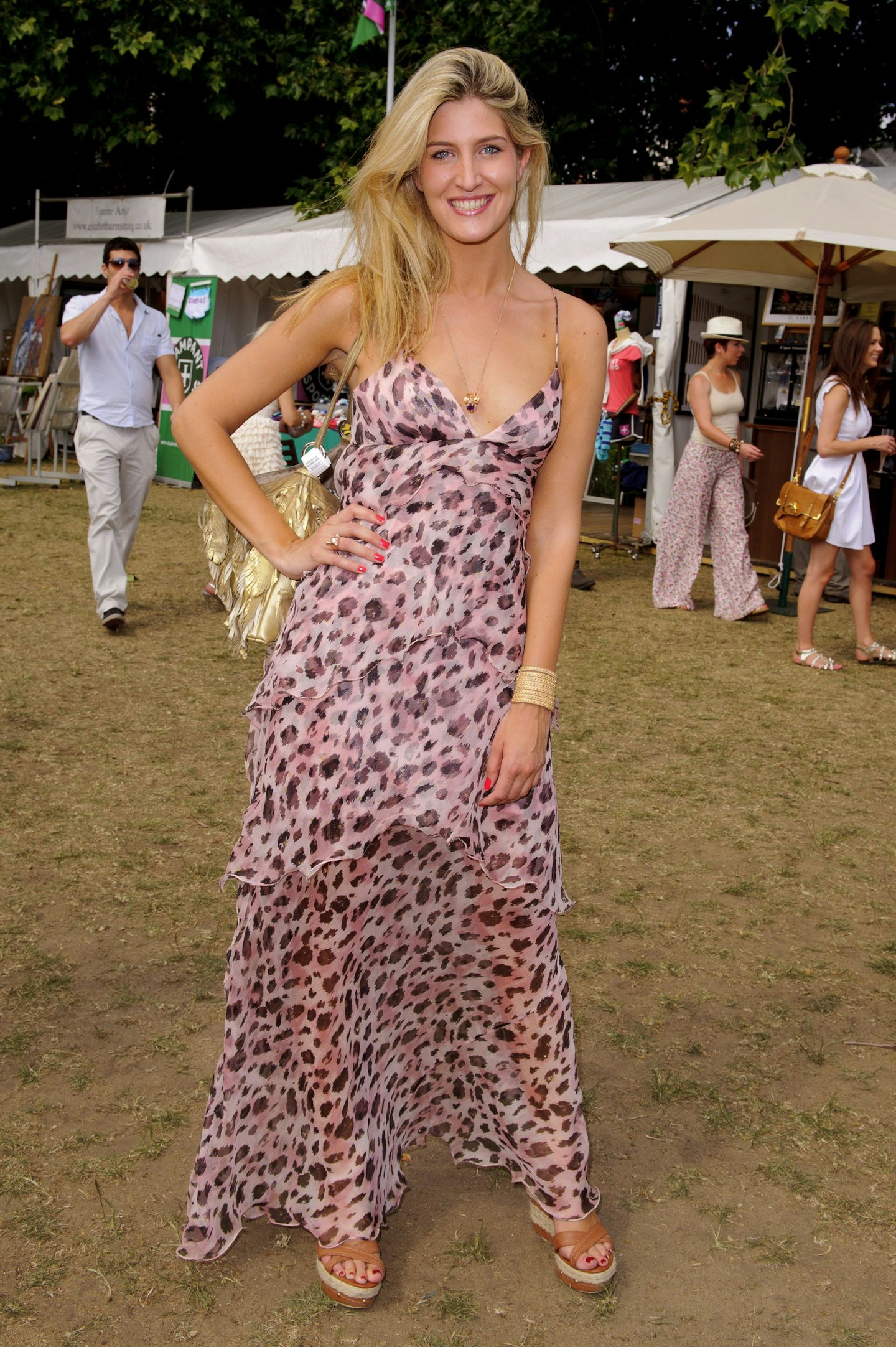
‘I tell participants that the gloves are off,’ says psychologist Jo Hemmings, who works with reality TV participants and previously carried out psychological assessments for Big Brother and Celebrity Big Brother. ‘It’s open season: once you’ve been on a reality show, people can say what they like about you.
‘Some people are strong characters and will recover from it, but others will be distraught at how people see them. It can be soul-destroying.’ She is just as brutally honest about what to expect when it’s over. ‘I tell them there will be photo shoots, magazine interviews and TV appearances, but that it will only last a week. Many of them find it difficult to grasp that life just goes on without any further fame. They’re in this twilight world where they feel like they can’t go back to their old jobs and are just trying to catch up with fame.’
It’s a similar story when people leave longer term shows such as Made In Chelsea and The Only Way Is Essex. On those shows, participants can also struggle to draw a line between the programme and their real lives. ‘Some embrace it, but others are left emotionally drained and feel they’ve lost sight of who they are,’ says Jo. ‘It makes people highly vulnerable and emotionally unstable.’
Cheska very much fell into the latter group. ‘When something happens in your private life, you deal with it, or park it,’ she tells Grazia. ‘But [with reality TV] you have to prepare yourself for everyone’s opinion six weeks after filming, when the show airs. It can be really draining to be constantly panicking like that.’
Three years after leaving the show, Cheska’s found happiness in Salcombe, Devon, where she works for her family’s boutique, Amelia’s Attic and now has a seven-month-old son, Charlie. Seeing the news of Sophie’s death has reminded her of how lucky she has been to ‘start a new life’. Before she left Made In Chelsea, she had hit rock bottom, living in a constant state of panic over how she would be perceived. It was fuelled by social media trolls who criticised everything from her appearance to her actions on the show. Off - air, she was battling a stalker who messaged her persistently for dates, and then threatened to kill her one Valentine’s Day. A long-term relationship, which she hoped would lead to marriage, ended – she claims due to the stress of the show. Then her depression came to a head when the grief of her father’s suicide, which happened during the first series of Made In Chelsea, finally caught up with her three years later.
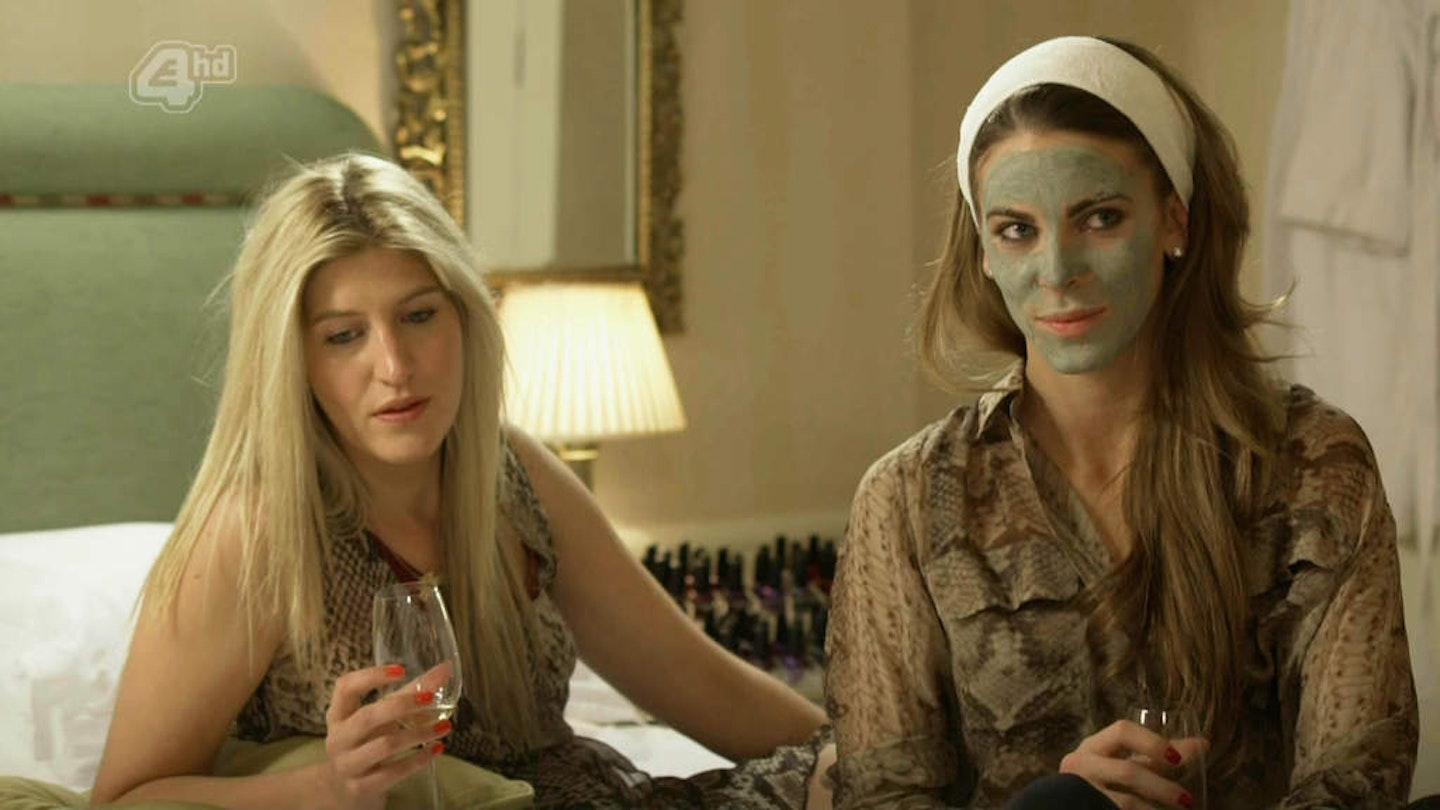
‘Depression and anxiety were the price I paid for reality TV fame,’ she says over lunch in Salcombe. ‘I was feeling so low,and felt like I couldn’t film. I felt silly for it: I’d signed the contract, I knew what I was getting into. But there were days when I couldn’t even get out of bed. I would dread the thought of walking down the street.
‘Suddenly, I was thinking about my dad’s death all the time, and was so low that I felt suicidal. Before, I was on such a high that I couldn’t understand why he would do something like that. But then I was in so much pain that I felt like I knew how he had felt.’
Eventually, Channel 4 sent her to see an independent therapist who, after six sessions, took the decision that she was unfit to film. It was Cheska’s way out. ‘Thank God she said I couldn’t go on, because God knows what would have happened otherwise,’ she says. After Sophie’s death, she can’t help thinking about something she once told her mother during her depression: ‘that something awful will happen on reality TV’. Yet she’s not sure what can change: she asked for help from Channel 4, and they gave it to her. But she hopes that by speaking out now, others will think carefully before going on such shows.
‘I was lucky that I had my mum and family telling me that, yes, I could survive,’ she says. ‘But some people find it addictive, they love the attention. And when the fame stops, or no one on social media cares any more, it really affects them.
‘I was desperate to get out. Now, I feel like I can breathe again.’
NOW READ: Stars Who Have Opened Up About Anxiety
Celebrity Anxiety
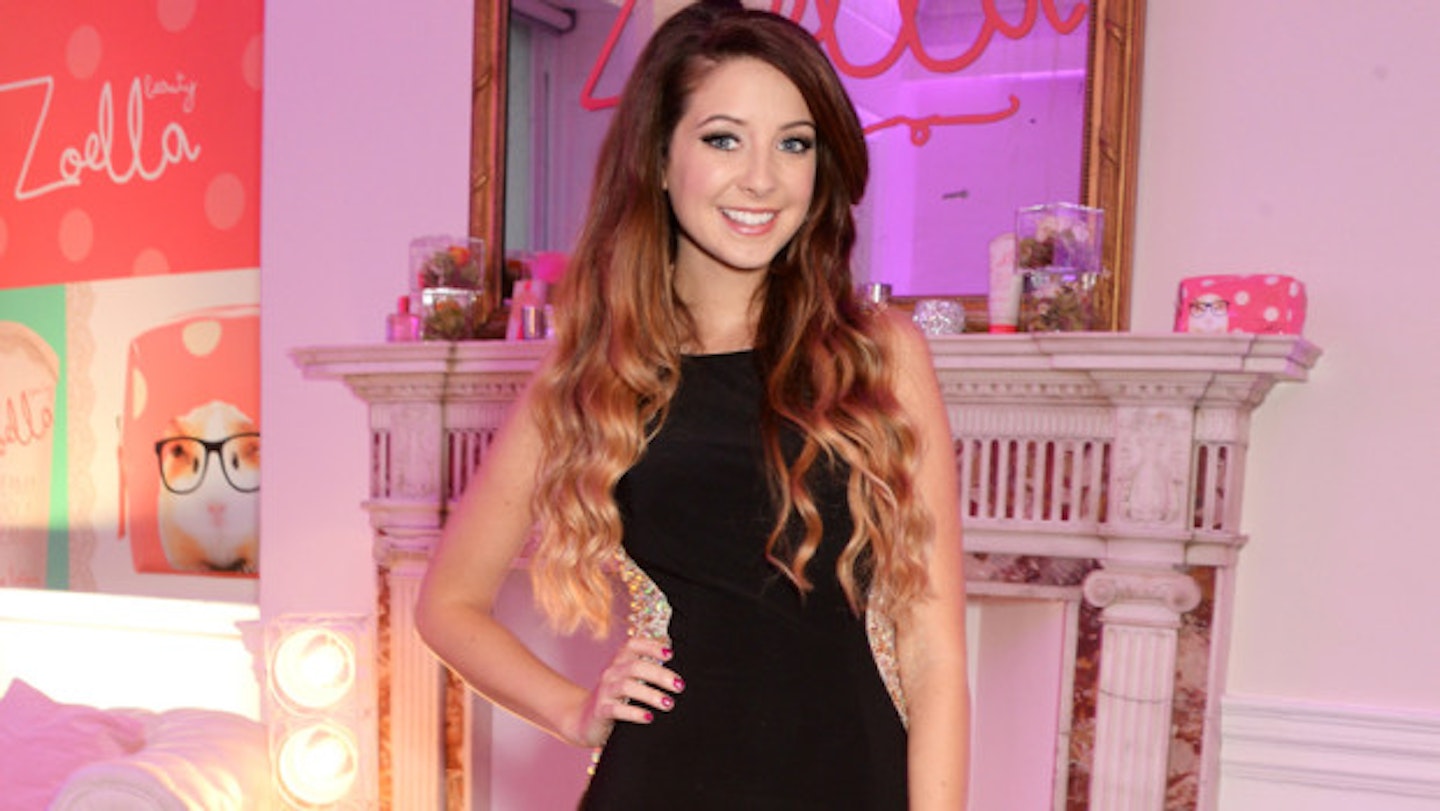 1 of 8
1 of 8Zoe Sugg
"[Anxiety] is a mental illness, and nobody likes to use the word 'mental illness.' But it is. And it's not something that people choose to have. I didn't choose when I was 14 to decide to have panic attacks for nine years and for it to ruin loads of opportunities for me, but that's just what happened. And you can either let it rule your life and let it make you miserable or you can just think, 'No, I don't want to live my life like that anymore.'"
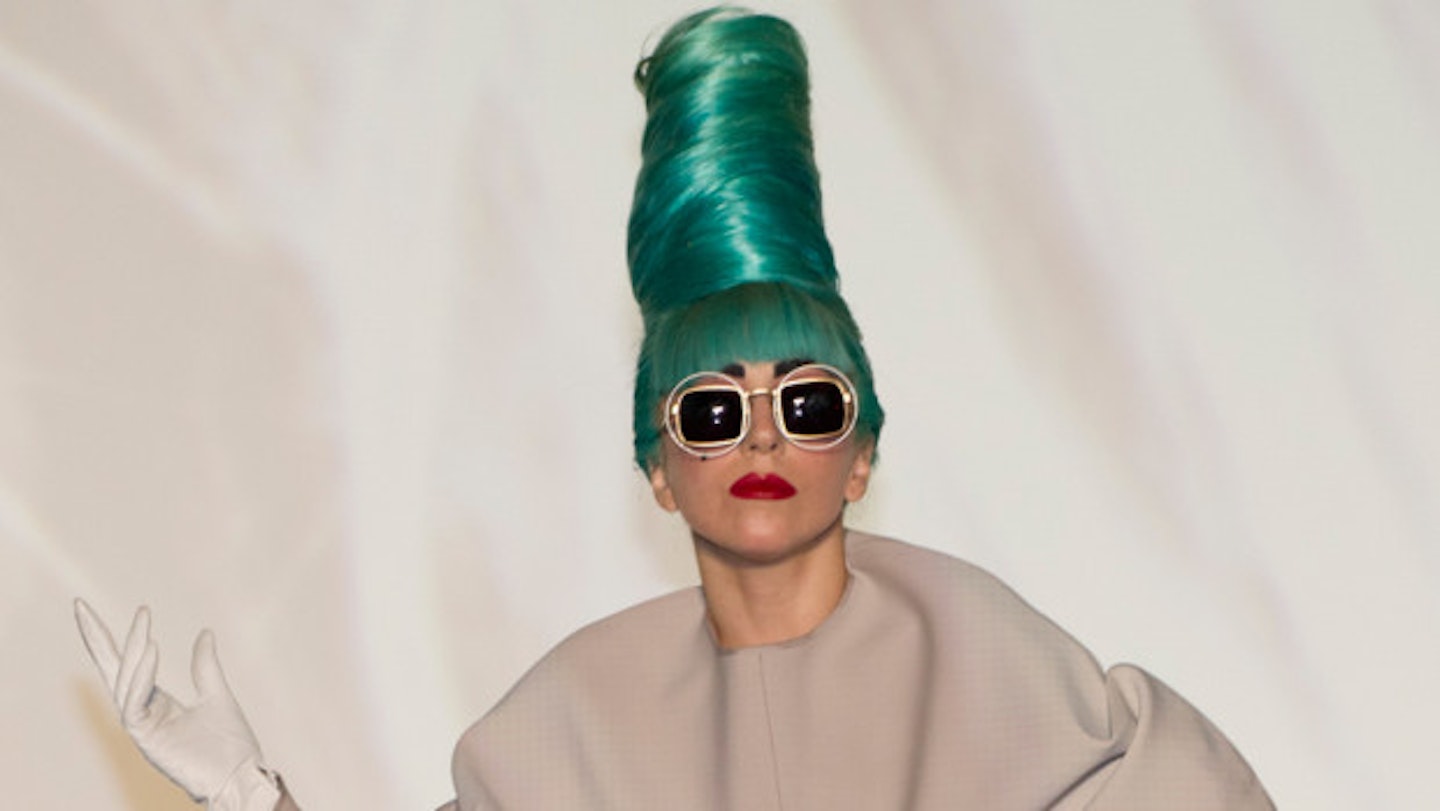 2 of 8
2 of 8Lady Gaga
"I learned that my sadness never destroyed what was great about me. You just have to go back to that greatness, find that one little light that's left. I'm lucky I found one little glimmer stored away."
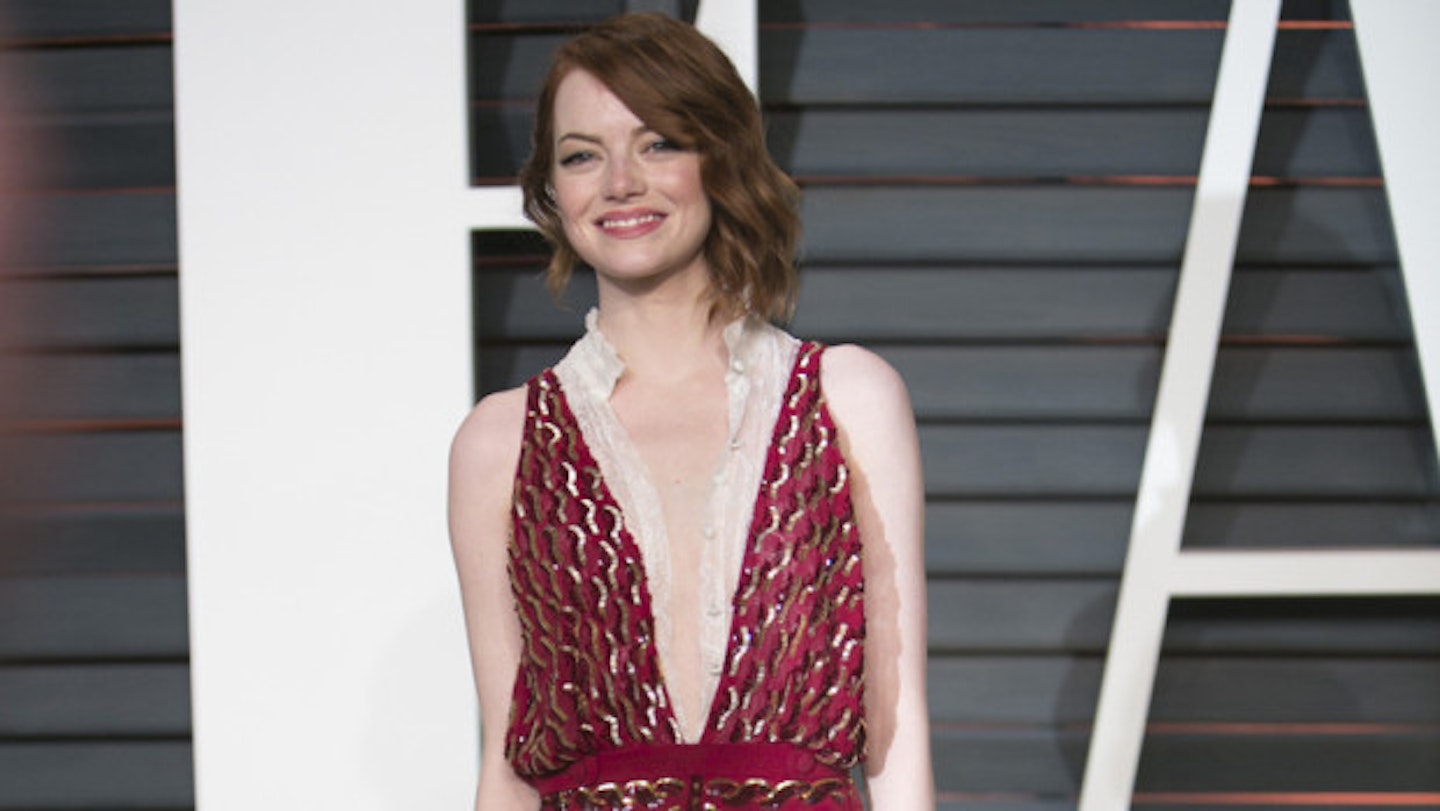 3 of 8
3 of 8Emma Stone
'I think I was really scared of that for a long time. And if something was really challenging, I thought that I was just going to fall on my face and embarrass myself. I'm just less scared of that now, of failing.'
 4 of 8
4 of 8Robert Pattinson
"I've been talking to a lot of people about it and I don't know. I kind of like my anxiety in a funny sort of way and I like my peaks and troughs. Luckily depression never lasts long with me." Robert Pattinson
 5 of 8
5 of 8Demi Lovato
"It's my mission to share this with the world and to let them know that there is life on the other side of those dark times that seem so hopeless and helpless. I want to show the world that there is life -- surprising, wonderful and unexpected life after diagnosis."
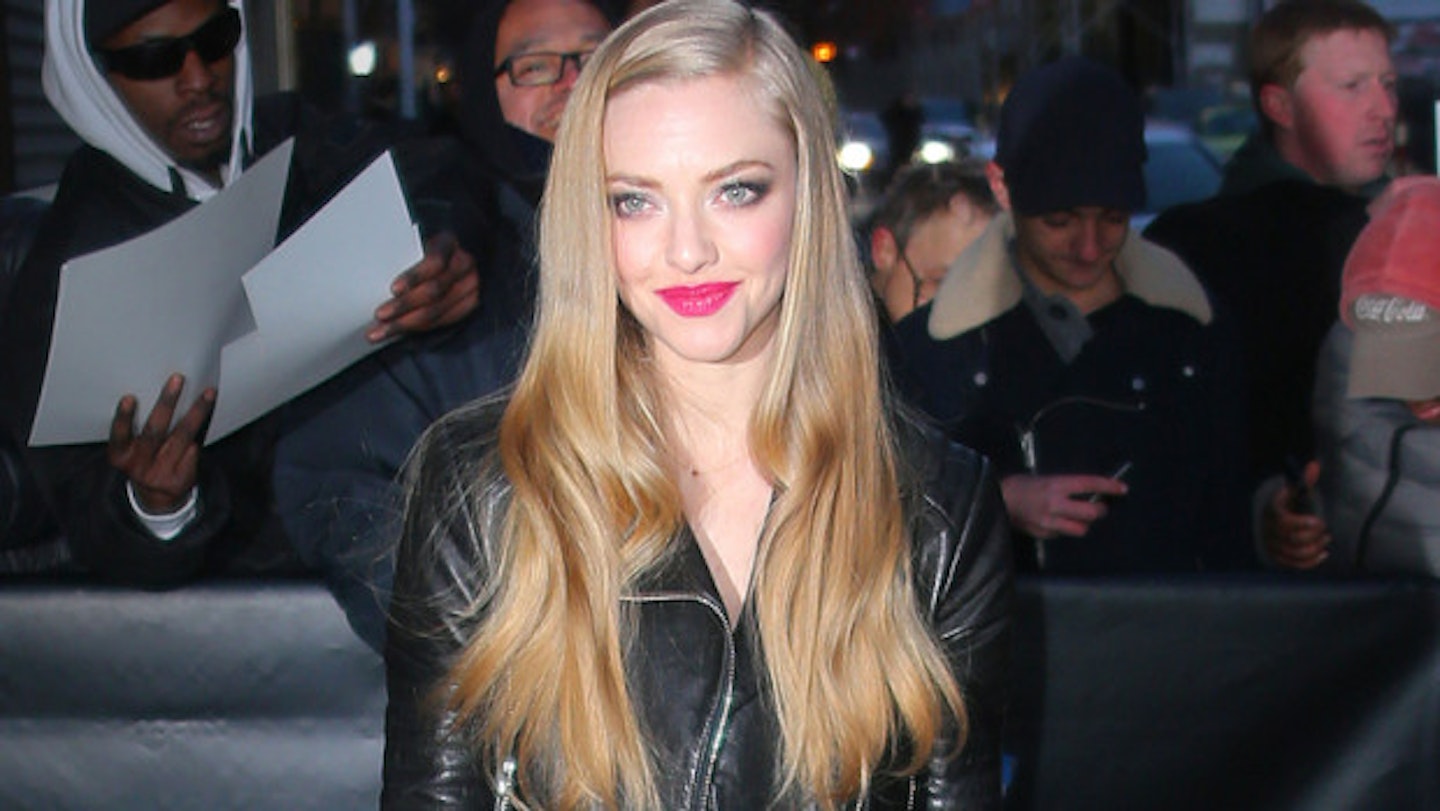 6 of 8
6 of 8Amanda Seyfried
We all get stuck. We all lose ourselves a little bit in a fantasy or in our jobs and forget how we feel about other things. It's really important to check yourself, to spend some time alone."
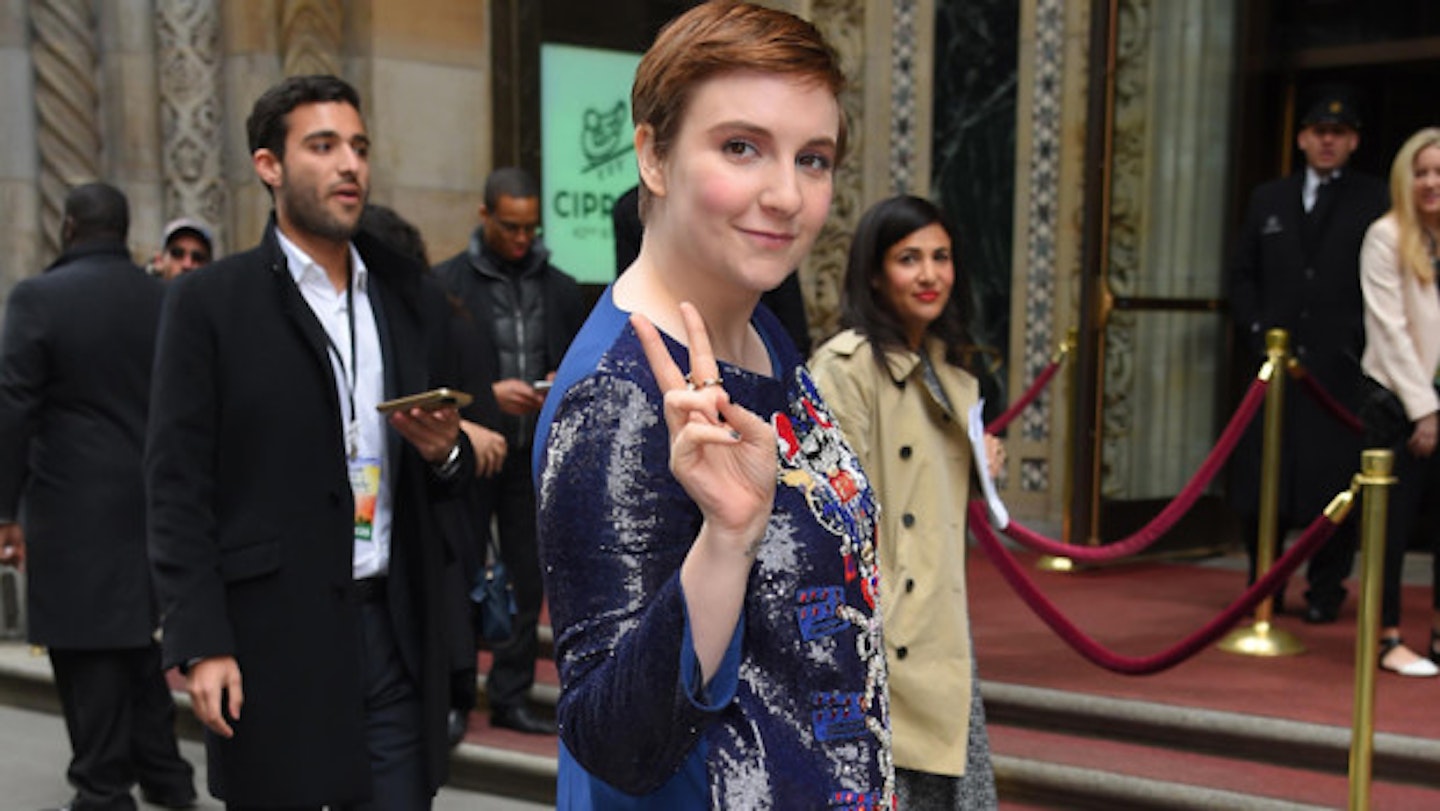 7 of 8
7 of 8Lena Dunham
'To those struggling with anxiety, OCD, depression: I know it's mad annoying when people tell you to exercise, and it took me about 16 medicated years to listen. I'm glad I did.' 'It ain't about the ass, it's about the brain,'
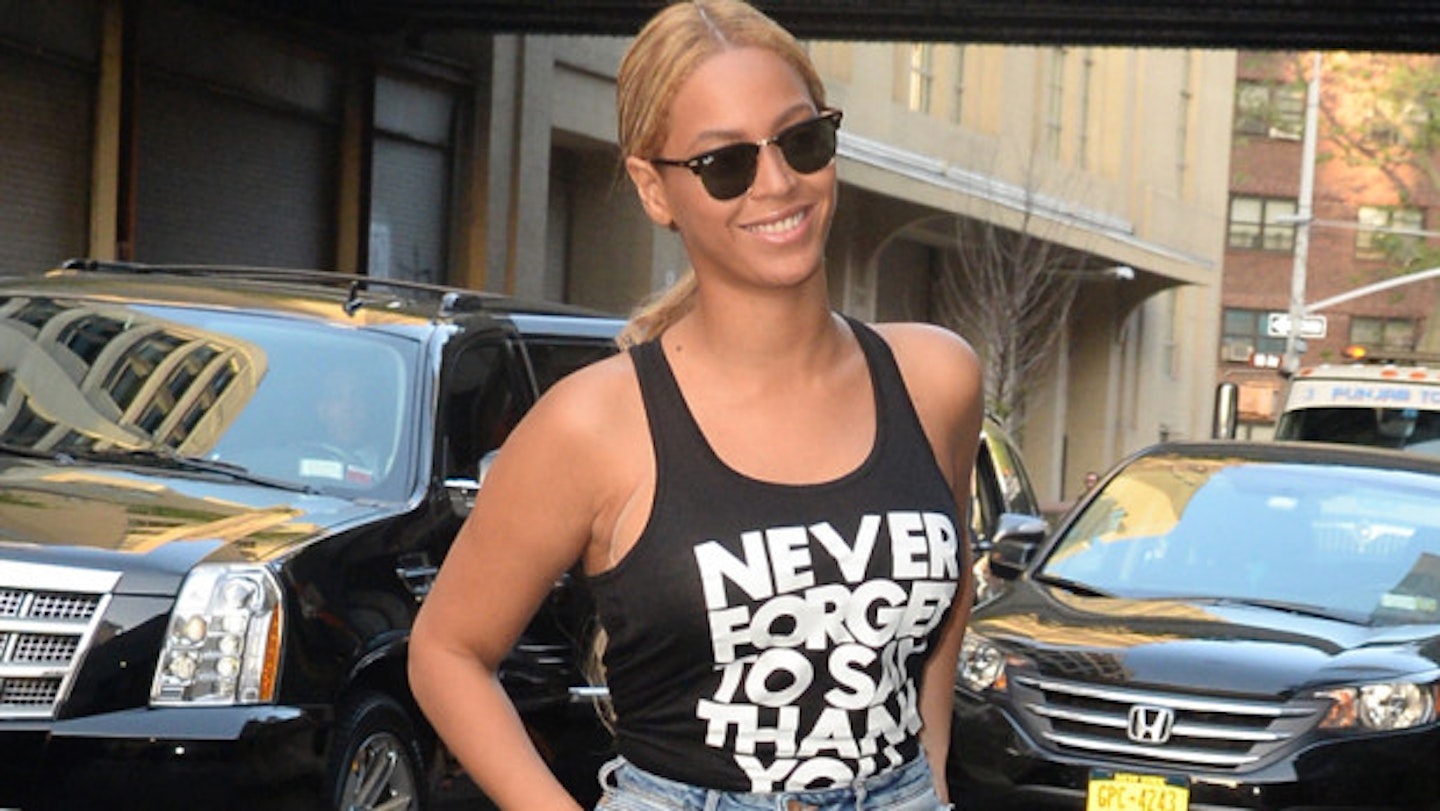 8 of 8
8 of 8Beyonce
"Now that I was famous, I was afraid I'd never find somebody again to love me for me. I was afraid of making new friends. Then one day my mom said, 'Why do you think a person wouldn't love you? Don't you know how smart and sweet and beautiful you are?' That's when I decided I only have two choices: I can give up, or I can go on."
